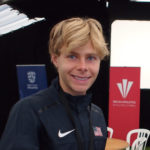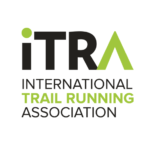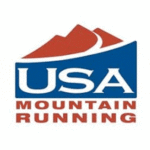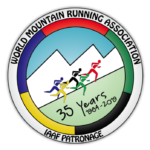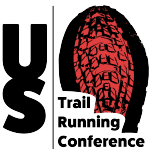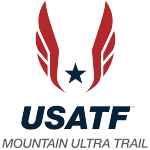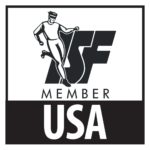
Janet Ng, President of The International Trail Running Association (ITRA) since 2021, race director, and avid trail runner based in Hong Kong has been a key figure in trail running on both the Asian and international stages. Ng’s varied roles in the sport have allowed her to develop unique perspectives on the growth of the sport in Asia, women’s participation, and professionalization, and most recently, her involvement in the creation of the inaugural 2024 Gran Canaria World Trail Majors.
Few individuals in the sport are as experienced in leadership roles as Ng when it comes to furthering positive change for a sport that has continued an upward trajectory of growth year after year. A 2021 trail running report by ITRA estimated that trail running has had an average growth rate of 12% for over a decade and reached over 20 million participants worldwide.
In the following Q/A style interview, I talk with Ng about her running, race directing, and leadership roles at ITRA, as well as the future of trail running. Ng is optimistic that with continued growth in popularity and new partnerships on an international level, trail running will reach new heights in the coming years. Ng explains her hopes, “As trail running’s popularity continues to rise, changes are inevitable, but I would like to see everyone cherish and promote the values of our sport. With these as our north star, I am sure we can meet new challenges, sanity check new developments, and embrace new initiatives.”
[TAYTE POLLMANN] Steve Brammar and you started the Hong Kong 100 in 2011. Could you explain the significance of this race to the local running community?
[JANET NG] Hong Kong 100 was the first individual 100km race in Hong Kong. We have had a 100km team race (Oxfam Trailwalker) for over 30 years, but there wasn’t a solo race. Back then, we traveled overseas to join such individual long-distance ultras, and on one of those trips, we decided that it was time to introduce an individual 100km trail race to Hong Kong.
At first, there was a bit of skepticism as to whether a team of 2 people (rather than a well-resourced NGO) could put on a race over such a long distance and a nervousness about running so far alone rather than in a team of four. There were a little under 200 starters at Hong Kong 100 that first year, but the following year saw over 500 runners take part, and quite soon, we were receiving thousands of applications vastly exceeding the 1,800 runner quota imposed by our permit from the government. For this reason, a ballot system was introduced in 2015, which continues to this day. An advantage of this is that we charge a little over $10 USD for each ballot application and then give the funds to charity. This (and some charity places) usually raises over $100,000 USD each year for good causes such as Blind Sports Hong Kong, RUN (which works with refugees in Hong Kong), and others.
It’s worth noting that a lot of trail runners in Hong Kong first discovered the sport as participants in Oxfam Trailwalker. This involves teams of four runners who have to cross each checkpoint and the finish line together and are encouraged to have sizable support teams. It’s very sociable, and we think is one of the reasons that Hong Kong has such a huge, inclusive and cohesive trail running community.
[TAYTE] The HK100 is known for attracting an international crowd. Could you explain what it’s like to balance creating a race for locals with one that attracts runners from around the world?
[JANET] Hong Kong is an international city and we have always welcomed everyone from around the world. We want to keep this characteristic of the city, so we set a quota for each country of runners that we automatically accept, and then for those above and beyond the number, we do a ballot. At the same time, we offer guaranteed priority registration to our volunteers (who are mostly locals).The local runners love welcoming the international runners to experience our beautiful trails and the unique scenery which Hong Kong offers and the international runners feel a warm welcome from the locals.

Janet Ng, president of ITRA and co-race director of the HK100.
[TAYTE] Who are some of the most famous American trail runners who have run the HK100 that our audience might know? Do you recall what their impressions were of the trail running scene and competition in Hong Kong compared to the US?
[JANET] From North America we have been delighted to welcome over the years: Dave James, Dave Mackey, Corrine Malcolm, Jenn Segger, Sage Canaday, Tim Tollefson, Seth Swanson, Alex Nichols, Jared Hazen, Abby Mitchell, Meghan Laws, Dylan Bowman, Jason Koop (coaching not running), Paddy O’Leary, Jamil Coury, Meghan Hicks (writing not running), Bryon Powell, Tyler Green and Rachel Drake. (Apologies to the many North American runners I’ve inevitably forgotten!). They have usually done well; for example, Jen Segger came 3rd in 2012, Dave Mackey was 8th in 2014, Sage Canaday was 3rd, Tim Tollefson was 5th, and Seth Swanson was 6th in 2017, Alex Nichols was 2nd in 2018, Jared Hazen was 5th in 2020, and this year Tyler Green came 3rd while Rachel Drake won The Third (33km) in a new course record.
Generally, the athletes’ impression has been surprise at just how beautiful the trails are here and amazement at how close they are to one of the world’s great cities. I don’t think there’s a city on Earth where world-class trail running is so accessible and so safe. Add to that happiness how easy Hong Kong is to navigate (with English widely spoken and great public transport) and the warmth of the welcome from the local trail running community.
[TAYTE] The HK100 has a high number of volunteers. How do you recruit volunteers and use them most effectively on race day?
[JANET] Our volunteer numbers are up around 1,300 these days, so yes, it’s almost one volunteer to two runners across the three race distances. We are really lucky that so many amazing, kind, resourceful people are happy to support the event and humbled by their dedication to serving the runners to ensure each runner, from the first to the ultimate finisher, will have an experience of a lifetime!
A lot of our volunteers are recruited through local running groups and scout teams. We try to make sure we have a lot, of course, marshals to keep runners on the course and cheer them along, and we generally have big teams at the checkpoints and finish line to help runners to rest and refuel and make sure they’re all receiving the right amount of TLC (tender loving care)! It really is the volunteers that make the event and the feedback from runners always emphasizes how well the volunteers took care of them. Like the runners, we couldn’t be more grateful!
[TAYTE] Hong Kong has a population of over 7.3 million and is one of the most densely populated areas of the world. Yet, from what I’ve heard, access to nature and the ability to escape the urban city feel through trail running is quite accessible from nearly any part of the city. How easy do you find it to access nature and find solitude in a place so populated?
[JANET] This is exactly right. Despite being one of the world’s most densely populated places, only 24% of our land is built-up area, and 40% is protected within country parks. So wherever you are in Hong Kong a 20-minute shuffle (usually uphill) will bring you to trails over hills, around reservoirs, across beaches and where you may not see a building or another soul for hours. You also get amazing views back at the city from the hills up above, which are just stunning. It’s something every trail runner should experience.
[TAYTE] You’ve completed major races all across the world. What are your favorite types of races? What is your most memorable race?
[JANET] I’m not good at racing at night and on technical terrain, so day or multi-stage races where one gets to sleep and faster courses work better for me. In terms of memorable races, that’s a difficult one because each race is special in its own way. For sure, races that push me out of my comfort zone are memorable, but ultimately, I think it’s when you get a “flow” during a race that makes the experience the most pleasing. I enjoy team races as well – and there are plenty in Hong Kong- where we train and race together with friends, aiming for a common goal and looking after each other along the way.

HK100. Photo: HK100.
[TAYTE] Let’s talk about elite trail runners in Asia. In the West, we are largely unfamiliar with the stars of the Asian trail running scene. Who are some names we should know of famous Hong Kong runners? Does the process of sponsoring athletes look similar in Hong Kong as in the West, where major shoe/apparel brands support athletes?
[JANET] In Hong Kong, the three “biggest names” in trail running are (on the men’s side) Wong Ho Chung and Stone Tsang and (on the women’s side) Cheung Man Yee. Man Yee won HK100 in 2023. Stone won Ultra Tour Monte Rosa in 2017, and Ho Chung was 8th in Tor des Geants last year. Each of these athletes does indeed have sponsorships from international shoe and apparel brands.
Any discussion of elite trail runners in Asia must also mention Mainland Chinese athletes. There is a deep field of talent in both the women’s and men’s fields, and more and more amazing runners are emerging all the time. For example, Shen Jiasheng (ITRA PI 915) won the Hong Kong 100 in 2019 and then burst onto the scene internationally, and there’s 25-year-old Meng Guangfu (ITRA PI 905), who has just won the Hong Kong 100, as well as Yao Miao (ITRA PI 799) and Xiang Fuzhao (ITRA PI 791) who have both won Hong Kong 100 and then found success overseas. Japan and Nepal also have a lot of strong trail runners and a proud history of impressive performances and there are great runners nowadays from most Asian countries.
The sponsorship process these days is pretty similar as in the West but there is a lot of undiscovered talent in Asia yet to be identified and recruited by sponsors.
[TAYTE] Do races such as the Hong Kong 100 offer elite entries and prize money for those talented runners making careers out of trail running?
[JANET] Although Hong Kong 100 does not offer prize money, we have in past editions (depending on individual circumstances) provided support in the form of free entries, travel, and accommodation support. The Gran Canaria World Trail Majors, of which Hong Kong 100 is part, does offer prize money. The best two race performances over a year are scored.
[TAYTE] Let’s dive a little further into your race directing career. What other races have you directed besides the HK100? When did you first start race directing?
[JANET] Hong Kong 100 started in 2011 and is the only race we have directed throughout the years. In 2017 and 2018, at the request of a sponsor, I directed a race in Mainland China, which grew from 800 in that first edition to 8,000 participants last year. Over the years, we have supported a couple of other races to set up, but we haven’t been race directors at any other races. We feel like Hong Kong 100 is already a handful!
[TAYTE] Your role with ITRA began in 2015 when you became the Treasurer. What initially drew you to working for ITRA?
[JANET] Back then, trail running started to take off rapidly in many countries. I really liked the idea of the creation of a non-profit association whose governing body is democratically elected to promote our sport globally, stay true to the core values of our sport and give voice to its players.
In Hong Kong, we also set up a trail running association around the same time, sharing the same spirit but working on the promotion of our beloved sport on a local level.

Janet Ng speaks at the Gran Canaria World Trail Majors announcement. Photo: HK100 Facebook.
[TAYTE] On September 11, 2021, you were elected president of ITRA. Could you describe the evolution of your roles in ITRA? What are your major motivations as president, and what changes would you like to see in the sport?
[JANET] I have been a National Representative for Organizers and Treasurer. Since the beginning, I have been a member of ITRA’s Steering Committee.
Apart from a small and dedicated Pro team, everyone else at ITRA works on a voluntary basis, including members of the Executive Board. Building an international organization with volunteers from all around the world devoting their energy and expertise for the benefit of the sport and runners everywhere is really rewarding. The road is not always smooth, and we will face plenty of challenges, but I believe that because we are all doing it for the right reasons, we will always have the support of our community and succeed together.
In 2024, we launched the ITRA National League, which is a movement that encourages runners to race locally in their own countries. Runners only need to complete three races of any distance to be ranked in their own country’s National League table, which is scored on an annual basis. This supports our race organizer members and encourages runners to run locally and discover the races closest to them. This is also more sustainable than traveling to races, so it links in with ITRA’s Green Program.
[TAYTE] In recent years, you’ve pushed for more female participation in trail running. Tell us more about this initiative and what more needs to be done to encourage women to trail run.
[JANET] When I first became the President of ITRA, I emphasized that one of my priorities was to increase women’s participation in trail running. The statistics show that this is happening, but we still have work to do. ITRA is committed to supporting events to be as inclusive and diverse as possible in every respect so that everyone can enjoy the many benefits of our wonderful sport.
[TAYTE] As President of ITRA, what are your main focuses this year?
[JANET] My main focus right now is the inaugural Asia Pacific Trail Running Championships which will take place in Ulju, South Korea, in October 2024. It will be great to provide an opportunity for the best runners in Asia Pacific to compete internationally at the highest level.
Another priority is to see the World Mountain and Trail Running Championships continue to grow. The races at the 2023 edition in Innsbruck were the most competitive field trail running has ever seen, and we want to continue this trajectory by ensuring that as many countries as possible are fully represented.
[TAYTE] In 2022, you had discussions about creating a partnership among race directors that is now the Gran Canaria World Trail Majors. What ultimately led to the decision to found the World Trail Majors?
[JANET] A number of the race directors involved had been talking about forming an alliance of independent races focused on the best interests of the sport for years now. Once the pandemic was behind us, we decided to go for it. We knew it would be a good way for races to support and learn from each other. We wanted it to be non-hierarchical—every race in the World Trail Majors has an equal say. We want the focus to be on races that provide the best runner experience and that prioritize sustainability and inclusiveness. We are really excited to be building something together with the teams from the other fantastic events.
[TAYTE] With two of three races in the inaugural 2024 Gran Canaria World Trail Majors now complete as of the publication of this article, how do you feel about how the series is going so far? Has the World Trail Majors operated as you expected it would so far or do you see any potential pivots or changes in future years?
[JANET] We have loved it so far. Everyone at Hong Kong 100 felt very privileged to be at the first-ever World Trail Majors event. Steve Brammar stayed up all night watching the excellent live coverage of Black Canyon Ultras. We were lucky enough to be at Transgrancanaria to enjoy the island’s warm hospitality and experience its natural charm. With MIUT and Mt Fuji 100 taking place next month, it feels like there is real momentum, and the runner feedback (from both elites and amateurs) has been great.
We have been approached by around 70 races who would like to be part of the World Trail Majors, which is truly humbling. We are currently planning for 2025 and how best to accommodate this demand. It’s a really exciting project to be part of, and we love having race directors from all over the globe as our colleagues and friends.

